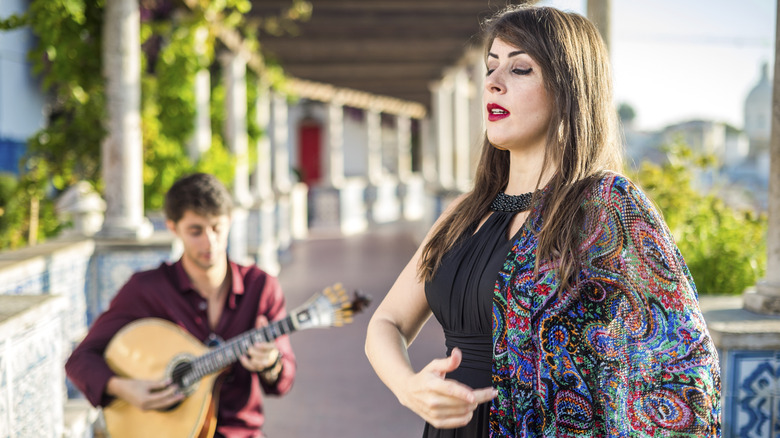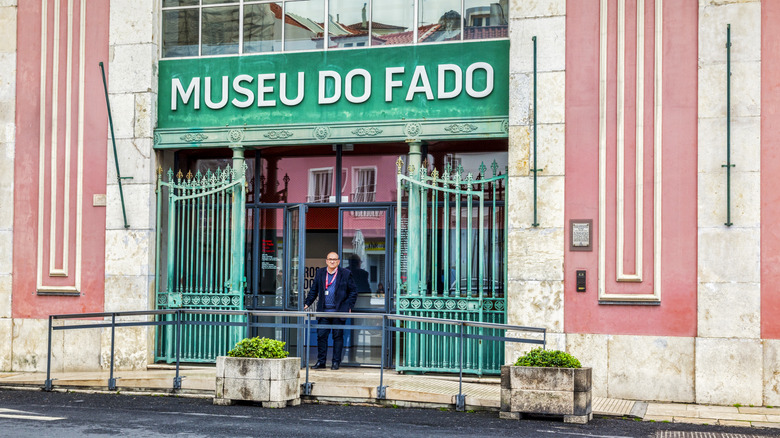Rick Steves Ditches Clichés And Opts For This Authentic Form Of Entertainment In Portugal
When visiting a new place, it can be tough to decipher whether or not an experience is authentic or one of those pesky tourist traps. Not only that, it can be equally difficult to decide whether or not you should even spend your precious vacation time on one of these cliches. Of course, there are plenty of must-sees that locals would dub silly or meant only for unsuspecting tourists. Still, as European travel guru Rick Steves says in his piece "Having Fun with Travel Cliches", most of these traps are "firmly grounded in a genuine custom or cultural highlight (such as Scotland's Highland games, Venice's Carnevale, and Munich's Oktoberfest)."
So, how can you ensure your visit to Europe is a meaningful one, and not spent experiencing silly cliches? Steves recommends first "ditching glossy brochures and tourist-board promotions. Instead, focus on getting a line on living traditions and local happenings." One such custom that Steves has high admiration for (and says is worth the hype) can be found not in the typical tourist trap destinations like Rome or Paris, but in a destination that has become increasingly popular in recent years: Lisbon.
Here, visitors can find a custom that, like flamenco in Andalusia, can be as intricate or simple as the location hosting chooses to make it. And while some locales have taken advantage and turned this tradition into a packaged experience tied to pricey set menus, "when done right, (it) reaches into the gut and stirs something deep". This is Fado (translated to fate in Portuguese), a type of musical performance that "like a musical oyster, (its) songs are full of the sea and the country's seafaring history. They're as genuine a cultural expression as you could hope to discover".
Experiencing the Lisbon Blues
So, what is Fado? Sometimes referred to as the "Lisbon blues", it's a type of soulful folk music typically sung by one person and accompanied by instruments like a 12-string Portuguese guitarra and other stringed accompaniments. Mournful yet stoic in delivery, fados lyrics tell stories of longing, sailors lost at sea, broken hearts, and bittersweet romance. A longstanding tradition, Fado is to be seen not in flashy restaurants, but in the sleek, smoky, low-lit taverns, or even a square tucked into one of Lisbon's old neighborhoods. This is where the music happens organically, and sometimes even unexpectedly. Steves comments that he seeks out free shows in neighborhood spots, where "you'll encounter fado vadio — open mic-night, where any amateur is welcome to share a song."
Some of the best neighborhoods to seek out a show are Alfama and Bairro Alto, where Steves says in his piece "Fado: The Lisbon Blues", are the best to find "a funky bar, without the high prices and big-bus tour groups, that still feels very local." He suggests exploring Rua Diario de Noticias and other areas in Bairro Alto, and heading straight up from the Fado Museum in the Alfama neighborhood.
Speaking of the museum, it's a fabulous spot to learn more about Fado and its origins, as well as listen to various audio. For an authentic Fado experience, Steves suggests going out for a late dinner and seeking out handwritten "fado tonight" signs, or simply wandering the streets of the Alfama, where you may come across an open-air concert. Steves parting words of wisdom suggest that travelers "apply (their) ... skills wisely, and your sightseeing will be a happy part of your trip. In the end, it's what you bring home in your head and heart that will last a lifetime."

